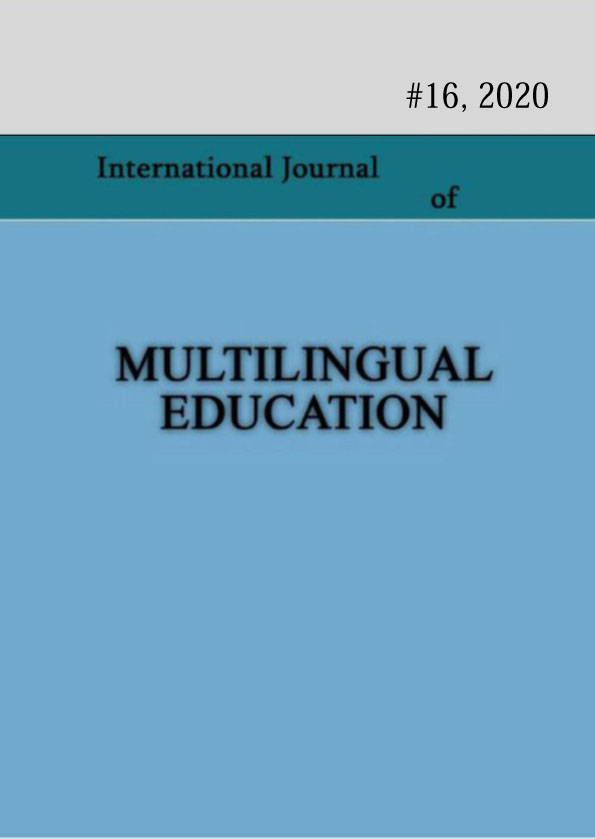Gender and language: Gender Implications in Proverbs (The Kartvelian Case)
Keywords:
Kartvelian languages, gender stereotypes, language and gender, proverbAbstract
Gender studies have been remarkably popular among the representatives of different scientific
fields in recent times. These topics appear to interest Sociolinguistics, Culturology,
Anthropology and other neighboring disciplines besides Linguistics itself. Studying proverbs of
the peoples all over the world as one of the perfect mediums for observing and comparing
different cultures, is crucial in many respects. Studying proverbs from Gender perspective do not
represent an exception. Highlighting and accentuating gender aspects contained in proverbs
becomes particularly important while talking about cultures that are rich with masculine or feminine tendencies. Proverbs can be considered as an important medium for the representation of the stereotypes existed in any society, since they are the reflection of the knowledge and experience accumulated over the centuries within the culture. Human wisdom and the system of perspectives concentrated in proverbs determine the core nature of a certain culture. Thus, the structural-semantic analysis of proverbs demarcates the general picture built upon the common beliefs, viewpoints and global perspectives of a certain society
References
Agbemabiese, 2005 – Agbemabiese, P., Gender Implications in Ewe Proverbs. Available from: https://www.academia.edu/12443673/Gender_Implications_in_Ewe_Proverbs_A_CloseStudy (Last access: 03.09.2020).
Bellis, 1996 – Bellis, A. O., The Gender and Motives of the Wisdom Teacher in Proverbs. Bulletin for Biblical Research 6, 15-22.
Davitiani, 1973 – Davitiani, A., Svan Proverbs. “Metsniereba” Publishing House, Tbilisi. Jorjaneli, 2003 – Jorjaneli, K., Selected Georgian Proverbs. “Merani” Publishing House, Tbilisi. Keener, 1994 – Keener C. S., The Role of Women in Proverbs. Priscilla Papers, Vol. 8, No. 1.
Kurdadze, 2011 – Kurdadze, R., “Social and Cultural Aspects of the Modern Georgian Language”. Tbilisi State University Publishing House.
Kurdadze, 2008 – Kurdadze, R., Gender. Encyclopedia Georgian Language. “Erovnuli Mtserloba” Publishing House, Tbilisi, 109-110.
Prov. I – Georgian Proverbs, 1999. Edited by N. Tatarashvili. “Samshoblo” Publishing House, Tbilisi.
Rasul, 2015 – Rasul, S., Gender and Power Relationships in the Language of Proverbs: Image of a Woman. FWU Journal of Social Sciences. Vol.9, No.2. 53-62.
Sherozia & Memishishi, 1994 – Sherozia, R., & Memishishi, O., Folk Wisdom (Megrelian and Laz Proverbs). “Msgefsi” Publishing House, Tbilisi.
Totibadze, 2017 – Totibadze, S., Most Frequently Used Gendered Metaphors in British Political Discourse (Based on the Discourse Analysis of four British Prime Ministers). MA Thesis, Leiden University.
Zheng 2018 – Zheng, X., The Analysis of Sexism in English Proverbs. Journal of Language Teaching and Research, Vol. 9, No. 2, 352-357.
www.idioms.tsu.ge – The database of Georgian idioms and proverbs (Last access: 23.07.2020).
Published
How to Cite
Issue
Section
License
Copyright (c) 2020 Giorgi Jgharkava

This work is licensed under a Creative Commons Attribution-NonCommercial 4.0 International License.
Copyright (c) - Authors who publish with this journal agree to the following terms: Authors retain copyright and grant the journal the right of first publication with the work simultaneously licensed under a Creative Commons Attribution-Noncommercial 4.0 International License, which allows others to share the work with an acknowledgement of the work's authorship and initial publication in this journal. Authors are permitted and encouraged to post their work online (e.g., in institutional repositories or on their personal website) prior to and during the submission process, as it can lead to productive exchanges, as well as earlier and greater citation of published work (see The Effect of Open Access). Authors may enter into separate, additional contractual arrangements for the non-exclusive distribution of the journal's published version of the work (e.g., post it to a repository or publish it in a book), with an acknowledgement of its initial publication in this journal.

